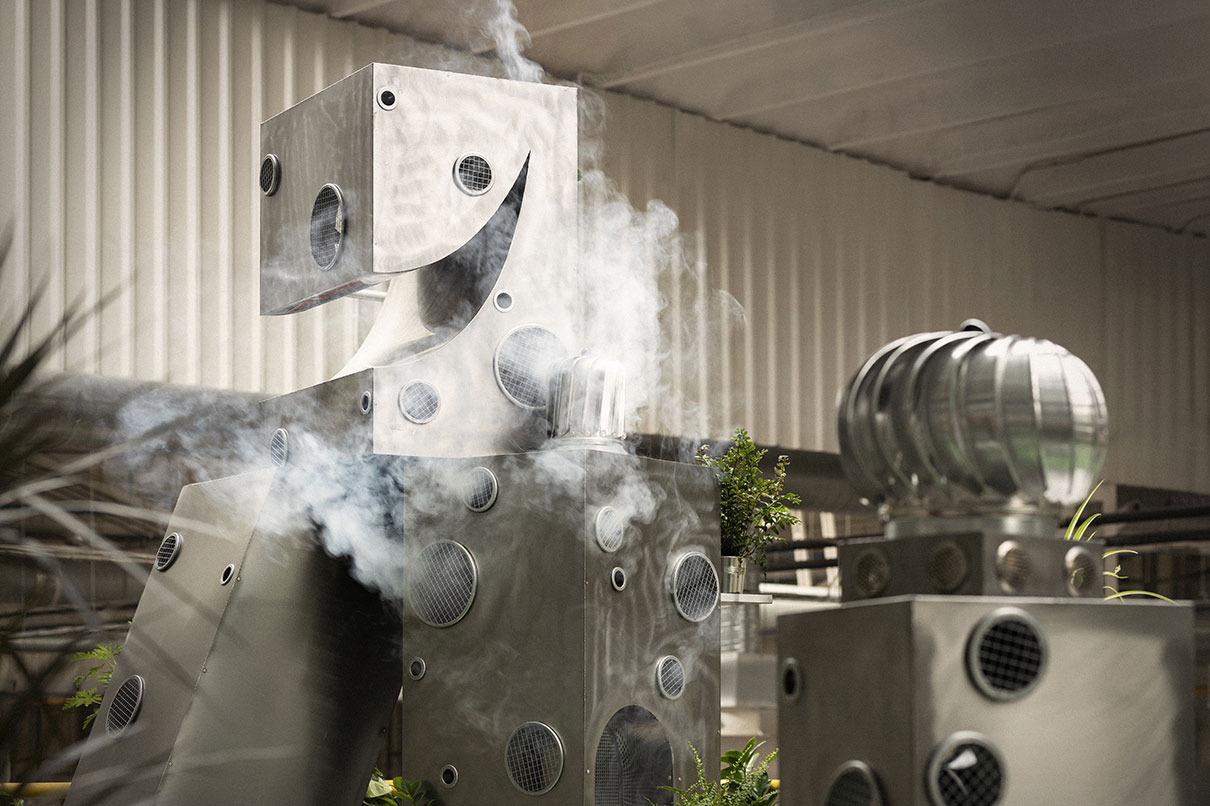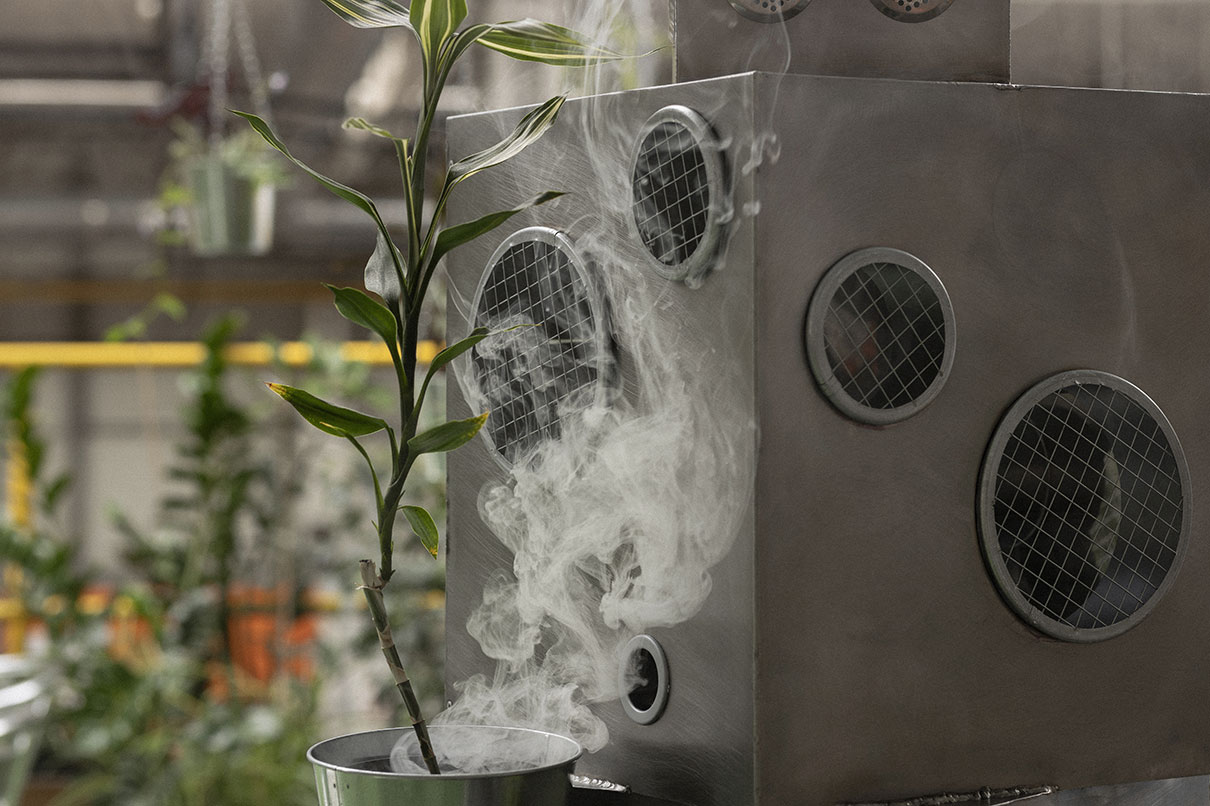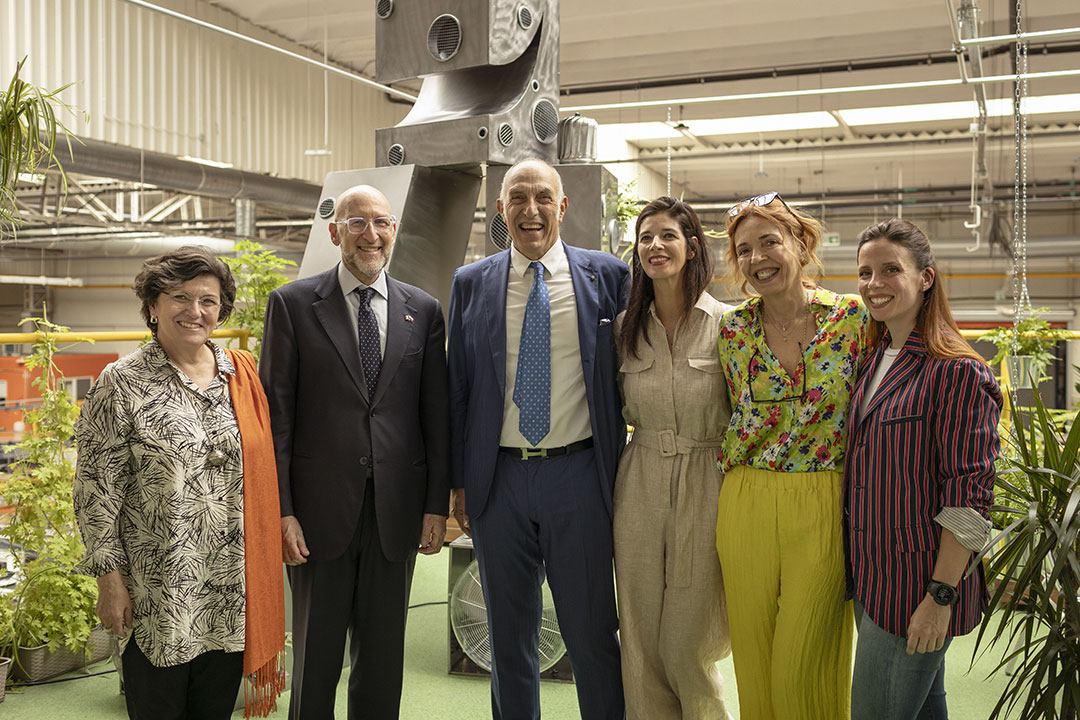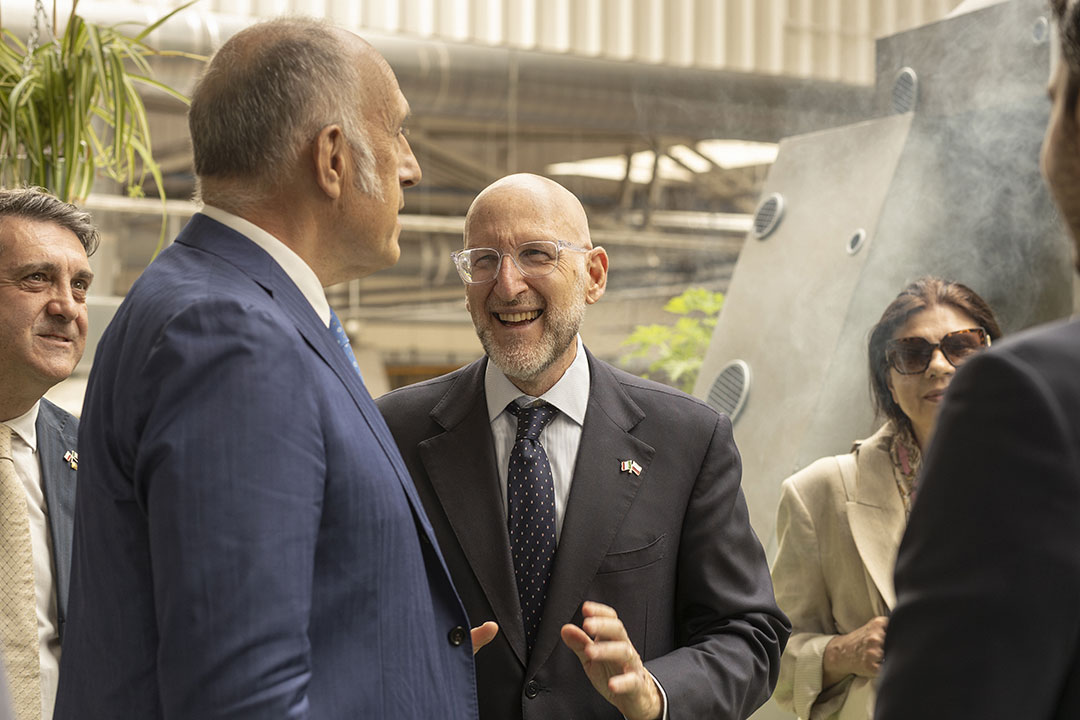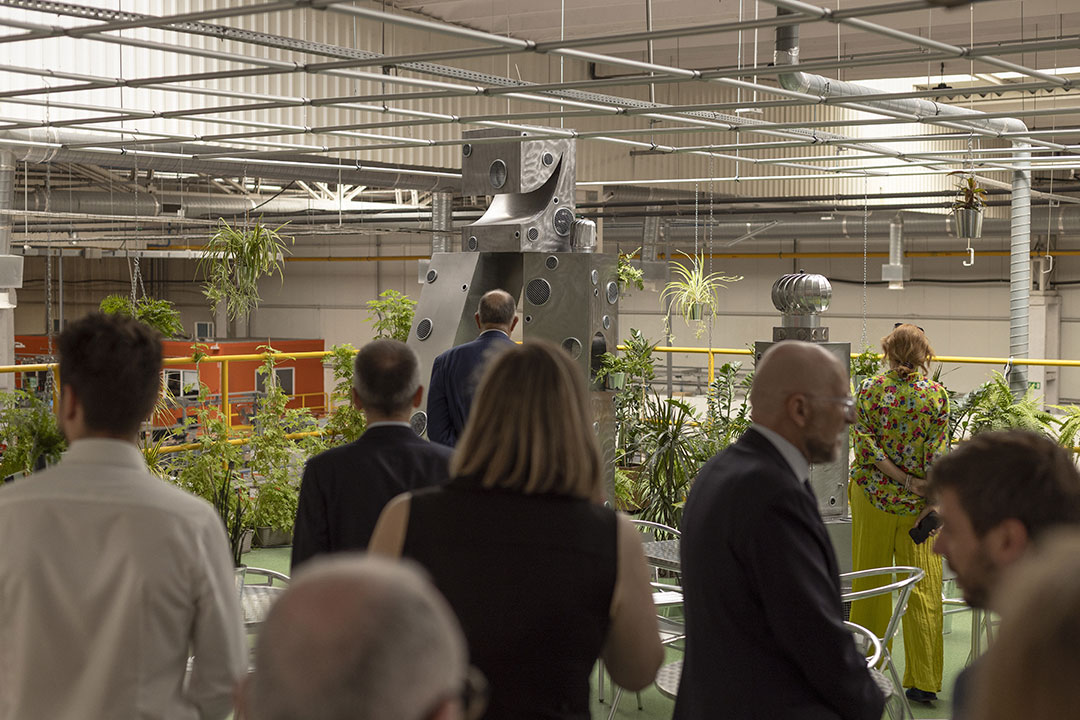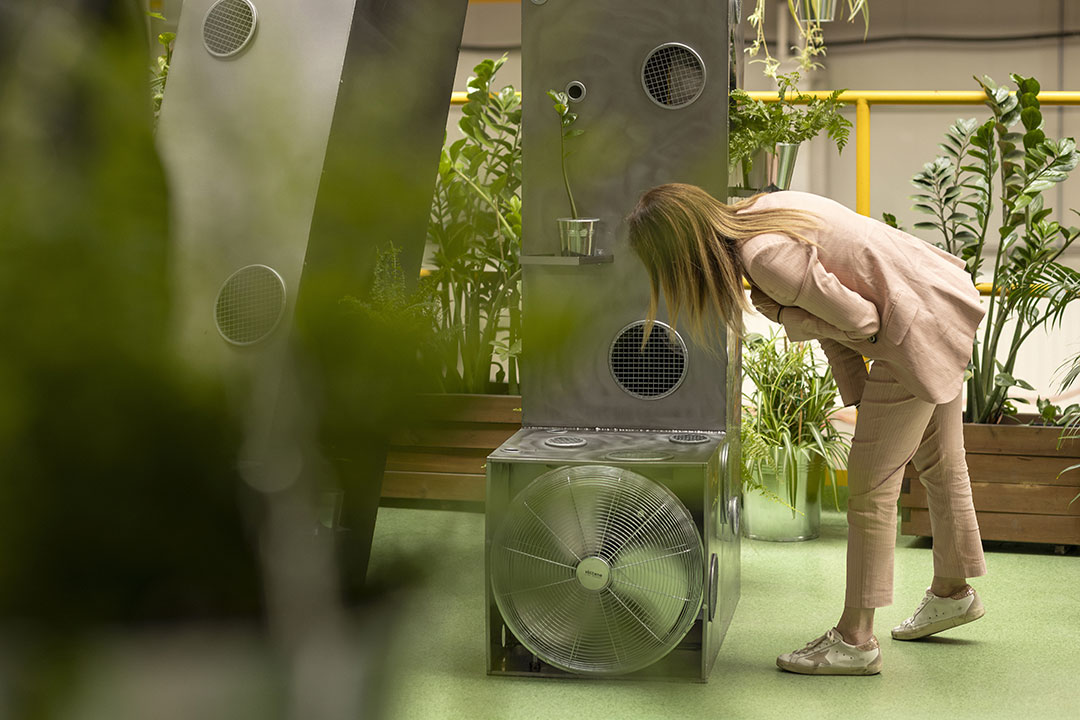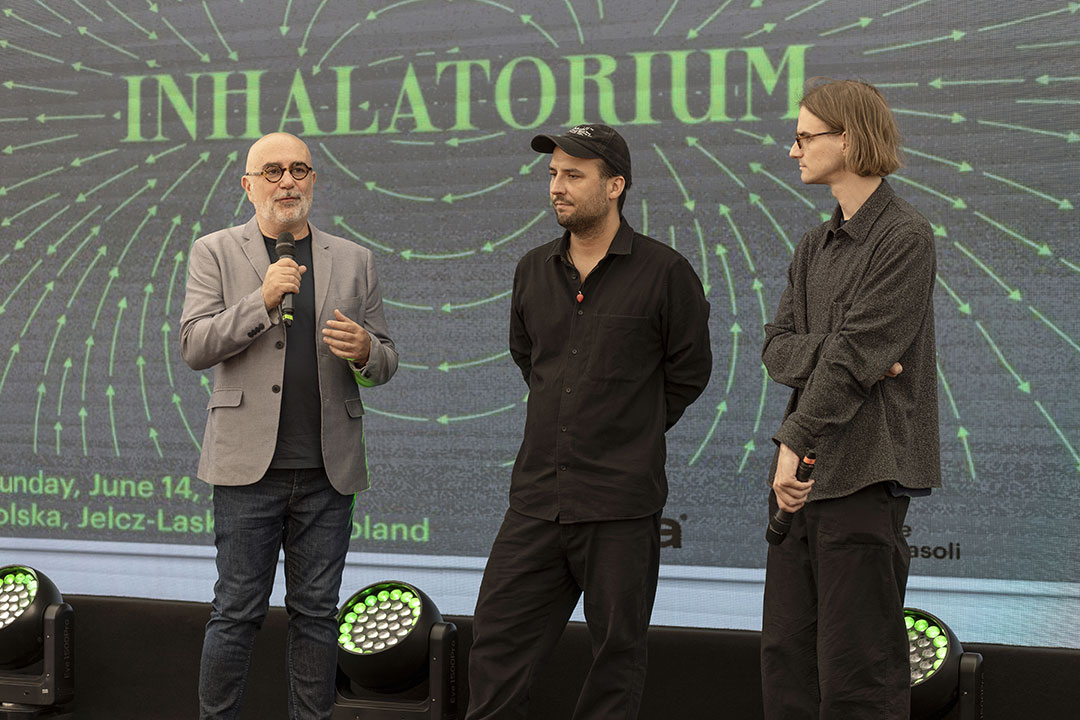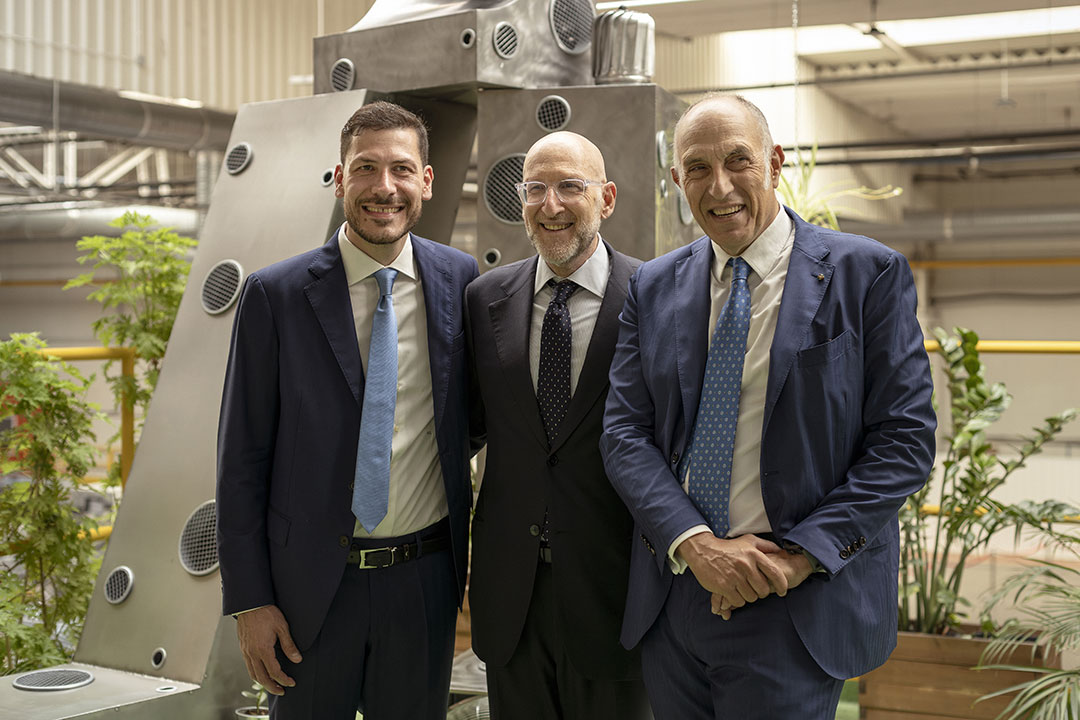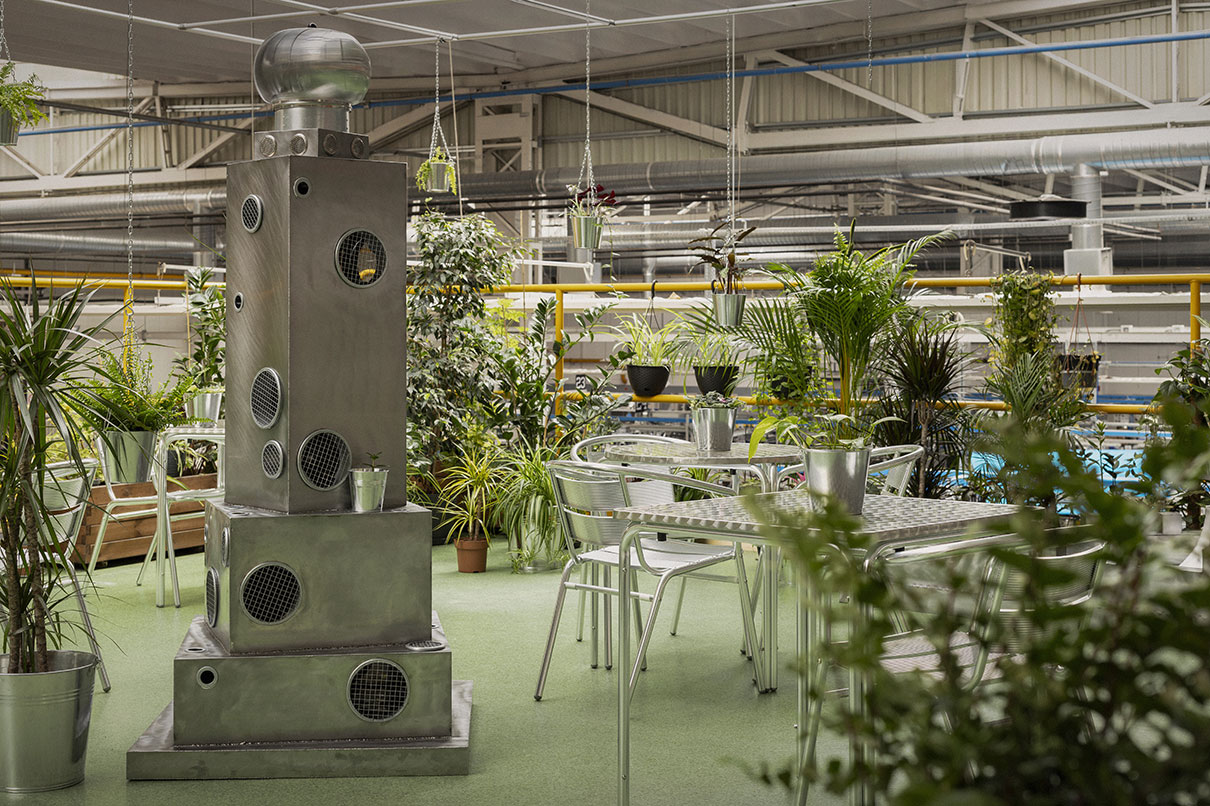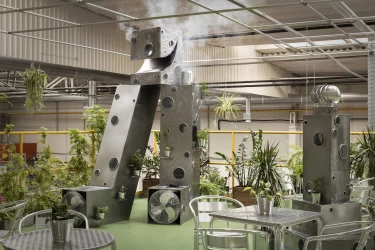
Inhalatorium, a site-specific artwork by artist Cezary Poniatowski, awarded the 23rd Premio Ermanno Casoli, curated by Jakub Gawkowski and Marcello Smarrelli. The work will be unveiled at the Elica Group Polska plant in Jelcz-Laskowice, Poland, on the occasion of its 20th anniversary.
Inhalatorium is a large-scale installation composed of several sculptural elements in metal, developed and realized in active collaboration with Elica employees, in line with the tradition of the Premio Ermanno Casoli, whose primary goal is to promote dialogue between art and business.
Conceived on the plant's terrace with a view over the production lines, the work serves as both an artistic intervention and a shared communal space, transforming the area into a surreal, hybrid environment.
Elica President Francesco Casoli said: “We’re proud to see the Premio Ermanno Casoli take shape at Elica Group Polska in its 20th anniversary year. Witnessing the active involvement of our employees in the artists’ creative process is always deeply inspiring, and it reaffirms the importance of opening our workspaces to dialogue and imagination through the universal language of contemporary art. Especially at this time when passion and creative vision are so important for a company as forward-looking as Elica.”
Cezary Poniatowski is known for transforming everyday objects and materials into sculptural compositions that draw on the histories, emotions, and memories embedded in material culture. In Inhalatorium, he engages directly with the materials sourced from the site, the rhythms of industrial production, and with the people who use the workspace each day. “In Inhalatorium, Poniatowski continues his long-standing interest in site-responsive installations that engage deeply with context. His project merges the physical characteristics of the space with his distinctive aesthetic—one that blends industrial materials with a visual language of ambiguity, distortion, and the grotesque,” notes co-curator Jakub Gawkowski.
At the heart of the installation stands a majestic, enigmatic figure, an anthropomorphic filter embodying air, the essence of Elica’s production and technological vision. Crafted from raw steel and punctuated with small organic forms, the sculpture references art-historical strategies for embodying abstract concepts, creating a tension between the artificial and the natural. Surrounded by greenery and incorporating elements of a fountain, the figure transforms the factory’s communal space into a setting that is at once clinical and fantastic, functional and metaphysical. While the materials remain rooted in their industrial origins, their reconfiguration opens up a space that defies the logic of production, merging machine aesthetics with unsettling, hybrid forms characteristic of Poniatowski's practice.
The title Inhalatorium refers to historical therapeutic sites once common in Lower Silesia, a region renowned for its sanatoria, dedicated to treating respiratory illnesses, where healing was believed to occur through the inhalation of saline vapors. The theme of breath—understood as a physiological act, a means of care and circulation—is a powerful metaphor that forms the conceptual backbone of the project.
“Poniatowski’s project for the Elica Group Polska community — explains Marcello Smarrelli, Artistic Director of Fondazione Ermanno Casoli — is grounded in a core conviction central to the Foundation’s mission: to harness contemporary art as an educational and methodological tool capable of enhancing the workplace environment and sparking innovative processes. Inhalatorium is not merely an object to be contemplated, but a device that redefines the company’s social dimension, strengthening the sense of belonging and connection among its people. Over the years, we have carried out similar interventions in other Elica facilities and within other major multinational corporations, activating art as a catalyst for dialogue, exchange, and reflection. This new installation fully embraces and advances this trajectory, reinforcing Elica’s international vision and its unique approach to promoting art and its transformative potential for the benefit of the communities involved.”
The installation was realized through a collaborative process that actively engaged Elica employees. Poniatowski’s artistic vision was combined with the technological expertise of engineers, technicians, and skilled workers, using the factory’s own infrastructure and materials. In addition, small cross-departmental groups were invited to contribute feedback throughout the process, fostering interdisciplinary collaboration. “Creating this work inside the Elica Group Polska factory was a rare and inspiring experience,” said Cezary Poniatowski. “Having direct access to the technical knowledge and skills of the company’s engineers and workers allowed me to expand the boundaries of my practice. For several weeks, the production environment became a temporary atelier, making the process as meaningful as the final installation itself.”
In the final phase of the project, the work was activated through a series of breathing workshops for employees — conceived by the artist in collaboration with sector experts — which echo the central themes of the installation and transforming the space into one not only to be observed but, above all, to be physically inhabited and experienced as a daily practice. Giacomo Chiatti and Katarzyna Wieteska, Site Director and HR Manager of Elica Group Polska, stated: “This moment of activation through the workshops marked not only the conclusion of the creative process, but also its full return to the Elica Group Polska community. Thus, the sense of belonging and co-creation defining the entire journey has been reinforced, recognizing the value of each employee’s contribution and inspiring a collective reflection on well-being in the workplace.”
Inhalatorium is an “air sculpture” that not only references the advanced air circulation systems developed by Elica but also invites reflection on how invisible forces—like air—are shaped, managed, and reimagined by humans throughout history.
The powerful intersection between art and industry experienced in this project recalls an important historical precedent in Poland during the 1960s and 1970s: the pioneering collaborations between artists and industry that gave rise to some of the most experimental and interdisciplinary forms of public art, exhibitions, and symposia. These initiatives regarded the factory not merely as a site of labor, but as a space for artistic imagination and civic engagement—a practice reactivated by Inhalatorium in a contemporary industrial context. This dimension will be further explored in a talk hosted by the Polish Institute in Rome on September 29, 2025, where the Inhalatorium project will be presented to the Italian public.
The initiative is organized under the patronage and with the support of the Italian Cultural Institute in Kraków and the Polish Institute in Rome, a valuable testament to the depth and vitality of the ongoing cultural dialogue between Italy and Poland.
